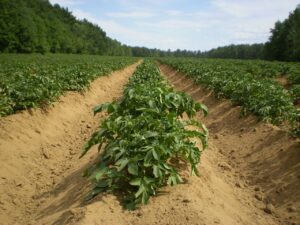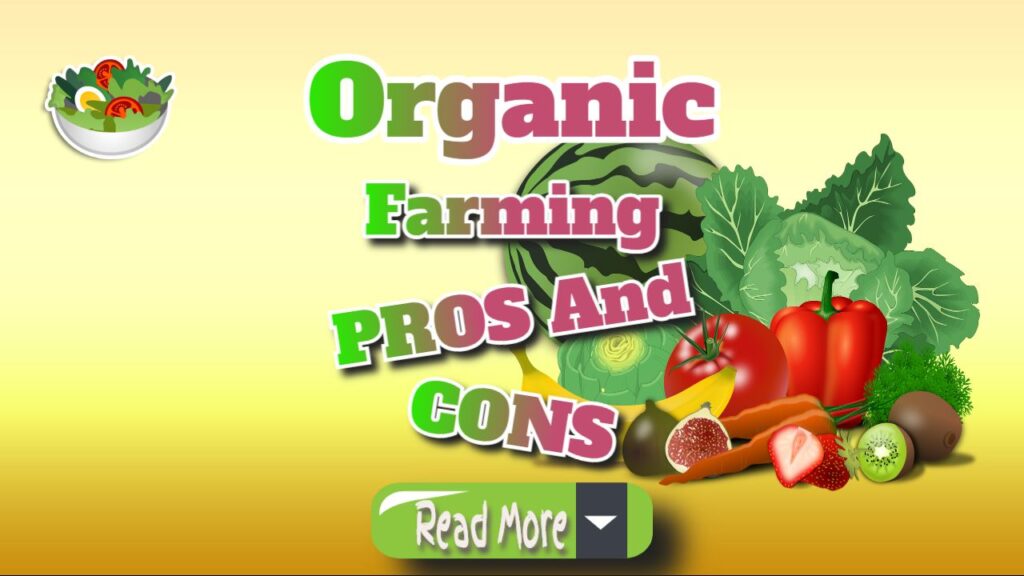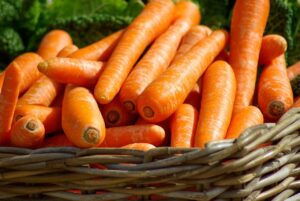Explore Our In-Depth Guide to Organic Farming
- Mastering the Foundations of Organic Farming Principles
- Uncovering the Numerous Benefits of Organic Farming
- Evaluating the Challenges Associated with Organic Farming
- Understanding the Essential Characteristics and Importance of Organic Farming
- Comprehensive Definition of Organic Farming: Key Features and Advantages
- How Supporting Organic Farming Enhances Your Health and Protects the Environment
- The Soil Association's Insight on Organic Farming Standards
- Simone Thomas Wellness: Advocating for Organic Farming Solutions
- Promoting Soil Conservation and Effective Management through Organic Farming Practices
- Latest Research Findings on the Environmental Impact of Organic Farming
- A Thorough Analysis of the Cost Factors for Organic Products
- An Extensive Review of the Pros and Cons of Organic Farming
Mastering the Foundations of Organic Farming Principles
Organic farming embodies a holistic and sustainable approach to agriculture, prioritizing natural methods to cultivate crops, raise livestock, and produce poultry. This agricultural system thrives on techniques such as green manure, composting, biological pest control, and crop rotation. Each method plays a crucial role in enhancing productivity while simultaneously safeguarding the environment. By encouraging the natural cycling of resources, organic farming not only supports biodiversity but also fosters an ecological balance that is vital for sustainable food production. Key practices in this paradigm include the strategic use of cover crops, application of animal manure, and crop rotation to disrupt pest and disease cycles, boost soil fertility, and maximize the biological activity within the soil, which collectively culminates in a vibrant ecosystem conducive to healthy farming.
The essence of organic farming lies in its commitment to ecosystem management, which ultimately enhances soil health and reduces reliance on synthetic inputs. This approach encompasses the art and science of plant breeding to foster resilience without resorting to genetic engineering. It also emphasizes the implementation of thoughtful pest control strategies that forgo synthetic pesticides, opting instead for natural fertilizers that are less harmful to the environment. Innovative practices endorsed by organic farming advocates, such as the no-till revolution, showcase the accessibility and effectiveness of these methods, making them viable for both small-scale gardeners and larger farmers. This not only yields environmental benefits but also presents economic advantages without necessitating expensive equipment or inputs.
The increasing popularity of organic farming reflects a societal shift driven by heightened awareness of pesticide residues and the potential risks associated with genetically modified organisms (GMOs). Effective marketing strategies utilized by organic advocates have significantly influenced consumer choices, prompting many farmers to embrace organic practices for the purpose of boosting profitability. However, this transition has given rise to issues such as fraudulent labeling, where conventional producers misrepresent their products as organic. The challenge ahead is to establish reliable testing methods that can accurately differentiate between genuinely organic crops and those treated with synthetic fertilizers, especially given that there can be minimal differences in the basic biological attributes of these products.
Uncovering the Numerous Benefits of Organic Farming
With the global population set to increase by billions over the next century, the challenge of sustainably feeding this growing demographic is becoming increasingly urgent. Current agricultural practices, particularly conventional industrial methods, are placing immense pressure on our planet's finite land resources, which are rapidly deteriorating due to intensive farming practices. According to a report by National Geographic News, food production currently occupies nearly half of the Earth's land area, threatening to exhaust the remaining fertile zones. To effectively tackle this pressing issue, a thorough evaluation of both modern industrial agriculture and organic farming practices is essential, highlighting their respective strengths and weaknesses.
A fundamental principle of organic farming is the strict prohibition of synthetic chemical fertilizers, antibiotics, herbicides, and pesticides. The primary objective of organic practices is to produce agricultural outputs—including fibers, grains, vegetables, fruits, and livestock—through the most natural and sustainable methods available. Organic farming excels in protecting our vital water and soil resources, maintaining ecological balance, and utilizing renewable resources in an efficient manner. However, it is equally important to acknowledge potential downsides. Below, we will explore the various advantages and disadvantages associated with organic farming practices, offering a well-rounded perspective on this critical agricultural approach.
As your interest in organic farming expands, you may find yourself contemplating its significance and the implications it holds for the future. The soaring global population necessitates a transition from conventional farming methods, which heavily depend on chemical inputs, to more sustainable practices. The detrimental impacts of chemical fertilizers and pesticides on our air, soil, and water quality underscore the urgent need for organic farming practices that prioritize ecological health and the provision of non-toxic food options.
Despite occupying only 1% of the world's agricultural land, organic farming represents a significant opportunity to address one of humanity's most pressing challenges: producing enough food for a projected population of 10 billion by 2050 without causing widespread deforestation or environmental degradation. This conclusion is supported by research conducted by my PhD student, Jonathan Wachter, which examined a multitude of scientific studies comparing the long-term sustainability of organic versus conventional agriculture. His published work, titled “Organic agriculture in the 21st century,” utilized the four primary sustainability criteria established by the National Academy of Sciences: productivity, economic viability, environmental integrity, and social justice.
Evaluating the Challenges Associated with Organic Farming
While organic farming offers a plethora of benefits, it is not without its challenges. Research from CNN indicates that the yields of organic crops can be significantly lower—by as much as 25%—compared to their conventionally grown counterparts. This yield disparity is influenced by various factors, including seasonal variations and the types of crops grown, but the inherent challenges associated with organic cultivation can lead to slower growth rates. Furthermore, the methodologies employed in organic farming frequently result in higher consumer prices compared to those of conventionally produced food items.
The escalating consumer demand for organic products has transformed the market landscape significantly. Once considered a niche for the affluent or environmentally conscious, organic food has now garnered widespread acceptance among a diverse demographic. Organic farming practices, which reject the use of artificial fertilizers and pesticides, prioritize traditional methods of pest and nutrient management such as crop rotation, natural barriers, and ecological pest control measures.
Over the past two decades, the organic agriculture sector has experienced astounding growth, with organic food and beverage sales skyrocketing from $1 billion in 1990 to an impressive $26.7 billion by 2010. This remarkable increase has been driven by average annual growth rates ranging from 12% to 21% (OTA, 2011). Notably, by 2005, all 50 states in the U.S. reported the presence of certified organic farms, collectively covering over 4 million acres (USDA-ers, 2008). However, with nearly 70% of American consumers now purchasing organic products (Hartman Group, 2008), many organic farmers are struggling to keep pace with the burgeoning demand, resulting in a noticeable supply-demand gap.
The growing population in areas such as Florida imposes development pressures that adversely impact natural resources and contribute to environmental degradation. Embracing organic agriculture can help alleviate some of this environmental strain by promoting sustainable food production practices. By limiting the use of pesticides and herbicides, organic farming cultivates diverse ecosystems that support a rich variety of plants, insects, and wildlife (McIlwain 2004). Moreover, organic practices tend to be less energy-intensive and generate minimal waste when contrasted with conventional farming techniques. A study from Washington State University found that growing organic apples is approximately 7% more energy-efficient than their conventionally grown counterparts (McIlwain 2004).
Understanding the Essential Characteristics and Importance of Organic Farming
Organic farming is distinguished by its unwavering commitment to soil health and sustainability, ensuring that agricultural methods do not degrade the land or contribute to desertification. This restorative approach places a strong emphasis on environmental stewardship while striving to maintain the health of our ecosystems for future generations. Sustainability is not just a concept but a fundamental belief at the heart of organic farming's philosophy.
To keep readers informed about the latest trends in organic farming, Organic Farming Magazine stands out as the UK's premier publication, released up to three times a year by the Soil Association. Each issue provides valuable insights into current news, policy changes, and market trends, along with detailed technical articles and reports illuminating the latest field trials and research in organic agricultural practices. Topics addressed within its pages include livestock management, horticulture, and various other agricultural disciplines.
A pivotal element of organic farming is the utilization of organic pest control methods that entirely forgo chemical pesticides. This practice not only preserves the integrity of the soil but also fosters a healthier ecosystem. When implemented effectively, organic pest control can sustain thriving crops for generations. Gaining a comprehensive understanding of how organic pest control operates is crucial for anyone interested in delving into the world of organic farming.
Organic fruits and vegetables have become increasingly sought after at farmers' markets, driven by a rising public awareness regarding health and nutrition. Establishing an orchard necessitates meticulous planning and attention to detail. This resource provides vital information on crafting optimal planting strategies and nurturing a connection with nature. It also delves into sustainable farming techniques alongside advanced methods such as grafting various tree varieties. Additionally, it offers guidance on the best species to cultivate, what to avoid, and essential insights into biodiversity and pollination practices that bolster organic farming.
Comprehensive Definition of Organic Farming: Key Features and Advantages
While contemporary agricultural practices offer certain benefits, the misuse of pesticides can lead to toxic repercussions for plants, animals, and the surrounding environment. Organic farming stands out as a sustainable alternative that protects the integrity of our ecosystems. In the United States, nearly 44% of agricultural imports consist of fruits, vegetables, wine, hops, and various specialty crops. This heavy reliance on imports can create ethical dilemmas and social issues within farming communities, as some individuals may seek to exploit vulnerable labor forces to cultivate these crops.
How Supporting Organic Farming Enhances Your Health and Protects the Environment
Adopting organic farming practices is beneficial not only for the soil and plants but also for the broader ecosystem, which includes both animals and humans. The practices associated with organic farming, as highlighted by Foam Organics International, provide numerous advantages that contribute to overall health.
Nonetheless, it is crucial to recognize that organic food generally comes with a higher price tag compared to non-organic options. The benefits of consuming organic food extend beyond flavor and nutrition; they may also lessen your exposure to antibiotic-resistant bacteria. Moreover, organic items can be prepared and frozen without a significant loss of nutrient density. While organic food may not always be the most budget-friendly choice, its production methods promote health and sustainability, making it a worthwhile investment for conscious consumers.
Currently, organic farming constitutes only about 1% of the global agricultural landscape, emphasizing a significant opportunity for expansion. This limited presence poses challenges not just for food quality but also for the stewardship of our lands and planet. Organic farming practices play a crucial role in maintaining the organic composition of soil, aiding in the mitigation of the ongoing destruction of the ozone layer caused by pesticides and emissions from various agricultural machinery.
Organic milk exemplifies the benefits of organic farming effectively. Many individuals who are lactose intolerant opt for soy milk as an alternative; however, organic options frequently provide superior health benefits. Taste preferences also factor in, with numerous consumers finding organically produced food more flavorful and satisfying. It's important to note that the USDA mandates that at least 70% of the ingredients in products labeled as organic must originate from organic sources. Concerns have been raised regarding synthetic additives in the food supply, which have been linked to serious health issues, including infertility, certain types of cancer, Parkinson's disease, and various endocrine and autoimmune disorders.
The Soil Association's Insight on Organic Farming Standards
The environmental repercussions of synthetic fertilizers cannot be overstated; their runoff into waterways presents significant threats to aquatic ecosystems and water quality. In contrast, organic fertilizers are less prone to leach from the soil and positively contribute to soil structure. The Organic Trade Association reports that organic fertilizers can enhance biodiversity by up to 30% compared to their synthetic counterparts.
The Organic Farming Digest, published between 1946 and 1954, holds the distinction of being the first magazine dedicated to organic farming, produced by an agricultural association based in Sydney. This quarterly publication featured contributions from both Australian authors and international experts, covering a wide array of topics related to organic farming and gardening. Eventually, the publication was adopted as the official magazine of the Living Soil Association of Tasmania, with its final issue released in December 1954.
According to the USDA Organic Agriculture Study Team, organic farming is defined as a production system that predominantly avoids or eliminates the use of synthetic fertilizers, pesticides, growth regulators, and feed additives. Instead, it relies on techniques such as crop rotation, biological pest control, animal manure, crop residues, and mechanical tillage to enhance soil productivity and manage pests effectively. Organic farmers strive to work in harmony with nature, promoting biodiversity to create a balanced ecosystem instead of depending on artificial inputs.
The U.S. Department of Agriculture defines organic farming as an agricultural system that responds to site-specific conditions and integrates cultural, biological, and mechanical practices to promote resource cycling, support ecological balance, and maintain biodiversity. In essence, organic agriculture prioritizes natural methods over synthetic ones to cultivate healthy crops and foster healthy soils.
Promoting Soil Conservation and Effective Management through Organic Farming Practices
The quest for a sustainable and green environment has emerged as a global priority. Research indicates that organic agriculture can play a pivotal role in achieving this goal. Long-term studies reveal that organic farming not only promotes ecological harmony and biodiversity but also supports biological cycles that are essential for environmental sustainability. The fundamental objectives of organic farming encompass effective soil management and conservation, nutrient cycling, ecological balance, and the preservation of biodiversity. These practices are critical in mitigating the effects of global climate change while positively contributing to environmental conservation efforts.
As previously mentioned, pest control within organic farming relies significantly on crop management and biological control strategies. The prohibition of synthetic fertilizers and pesticides fosters the preservation of natural predators and beneficial insects, thereby enhancing the overall health of the ecosystem. This elimination of harmful pesticides increases the diversity of crop pollinators and diminishes pesticide residues in food products. Organic farms, managed with a focus on biodiversity, also cultivate environments where microorganisms thrive, ultimately leading to improved soil fertility and greater ecosystem sustainability. Diverse cropping systems and the cultivation of hedgerows provide habitats for beneficial insects and wildlife, further enriching biodiversity within organic farming systems.
Latest Research Findings on the Environmental Impact of Organic Farming
1 January, 2021
Research has shown that the introduction of genetically modified organisms (GMOs) can adversely affect local biodiversity. Although industrial agriculture provides consumers with access to a wider array of food options and encourages balanced diets, the emergence of GMOs has sparked significant debate among consumers. Understanding the implications of GMOs and distinguishing between GMO, non-GMO, and organic crops is crucial for making informed choices and adopting best practices in agriculture.
A Thorough Analysis of the Cost Factors for Organic Products
The price of organic food typically exceeds that of conventional produce, often by considerable margins. The organic food market lacks the clearly defined pricing structures found in other agricultural sectors, which can challenge specialty farmers as they vie for position in the marketplace. Many communities have responded to this challenge by establishing food cooperatives with local farmers, allowing consumers to prepay for their organic produce, which they can collect at the end of the growing season.
There is no denying that organic products frequently come at a premium—prices can be 50% to 300% higher than those of conventional alternatives. The labor-intensive nature of organic farming contributes significantly to these price discrepancies. Despite this, organic products often yield substantially higher returns on investment for both retailers and farmers. Consumers are increasingly willing to pay more for organically produced items, although the supply of such products remains limited.
Additionally, organic food usually has a shorter shelf life compared to conventional products. For farmers, growing crops for the organic market entails heightened physical demands. While conventional farming emphasizes maximizing yields of specific crops, organic farming strategies focus on minimizing off-farm inputs and addressing external factors that may affect growth. Nonetheless, the environmentally friendly practices associated with organic farming contribute positively to ecological balance and sustainability.
The development of organic farming practices by “Kusto Agro” exemplifies a growing commitment to expanding cultivated land and increasing crop diversity. In Europe, organic products have gained traction among consumers, despite their higher costs. This trend represents a profitable business opportunity, as the global market for organic products continues to expand at an annual growth rate of 10-15%. However, obtaining the necessary certification is essential to compete on the international stage.
While organic farming offers numerous advantages, it is crucial to recognize its limitations and challenges. In the following section, we will delve into the most significant pros and cons associated with organic farming practices.

An Extensive Review of the Pros and Cons of Organic Farming
Written by Behind the Plough | Feb 13, 2019, | Agricultural Resources, Organic Farming
The ongoing discussion surrounding conventional versus organic farming continues to capture public interest. However, it is essential to acknowledge that both farming methods possess distinct advantages and disadvantages. Ultimately, the decision regarding which practices to adopt rests with individual farmers, who must carefully consider their unique circumstances and objectives.
While organic food often exhibits a shorter shelf life compared to its conventional counterparts, producing crops for market can be physically demanding for farmers. Conventional agricultural methods may focus on the cultivation of specific, high-yield crops, whereas organic farming necessitates a more integrated approach that minimizes reliance on external inputs. Organic farming practices are fundamentally more environmentally friendly, yet they also come with their own set of challenges, particularly concerning soil quality and ecological balance.
The management of weeds, pests, and plant diseases in organic farming requires a comprehensive and integrated approach. This systems-based strategy employs a variety of tools and techniques rather than relying solely on a single method, such as pesticide application. This approach, known as Integrated Pest Management (IPM), enhances the effectiveness of organic-approved pesticides while potentially reducing overall usage. IPM is not a new concept; integrated strategies have been utilized for centuries, albeit without a standardized term.
At its core, organic farming embodies the
Comments are closed




Your exploration of organic farming principles resonates with me on several levels, especially considering the ongoing conversations around sustainability and food production in today’s world. It’s intriguing to see how organic farming not only prioritizes the soil’s health but also addresses broader environmental concerns, such as biodiversity and ecosystem balance.
I appreciate your insights on organic farming principles. They really do connect with the growing dialogue around sustainability and our food choices. It’s fascinating how organic practices not only aim to maintain soil health but also create a ripple effect that benefits biodiversity and overall ecosystem balance.
You bring up some important points about the interconnectedness of organic farming and sustainability. One thing that often gets overlooked is how organic practices not only enhance soil health but also support local wildlife. When farmers use methods that focus on natural pest control or crop rotation, they’re not just thinking about their yield; they’re creating habitats for various species.
I’m glad you found the insights valuable! If you’re interested in exploring more about how organic farming can contribute to a sustainable future, check out this resource that dives deeper into these practices and their impact on our planet.
https://cnisclub.org/octopus
It’s encouraging to see that the principles of organic farming resonate with you; it reflects a growing awareness about the intricacies of food production and sustainability. You mentioned the importance of soil health and how it connects to broader environmental issues, which is a crucial point. The soil is often overlooked in discussions about sustainability, but it truly is the foundation upon which everything else rests. Healthy soil not only nurtures plants but also plays a key role in water retention, carbon sequestration, and supporting diverse microbial communities—all essential elements for a balanced ecosystem.
I really appreciate how your guide highlights not only the principles but also the multifaceted benefits of organic farming. It’s fascinating to consider how this practice isn’t just about avoiding chemicals but also about embracing a whole ecosystem approach that fosters biodiversity and soil health.
Your reflection on the multifaceted benefits of organic farming strikes a chord. It’s true that when we think about farming, our minds often jump straight to the avoidance of chemical inputs. However, there’s so much more happening beneath the surface, quite literally. The ecosystem approach to organic farming is a vital topic that deserves more attention—especially today, as we face challenges like climate change and biodiversity loss.
Thank you for your kind words! If you’re interested in exploring more about the benefits and practices of organic farming, check out this resource that delves deeper into sustainable techniques and their positive impact on our planet.
https://cnisclub.org/quillbot
It’s interesting to see a comprehensive guide on organic farming, especially given the growing consumer interest in sustainable practices. However, I wonder if the focus on benefits often overshadows the practical realities farmers face. For instance, while organic methods can enhance soil health and biodiversity, the transition period can be economically tough for many who are just starting out.